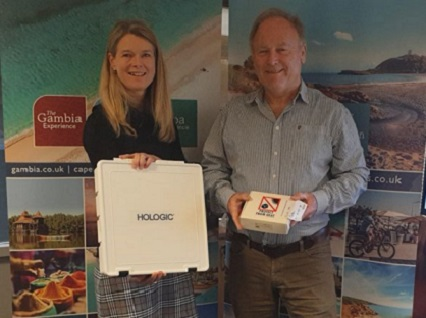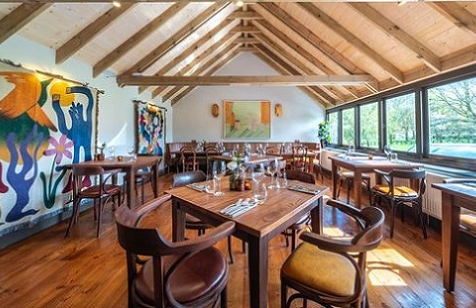Where's the best place to go in the UK to stargaze? It appears the answer is Mid Wales where the dark skies and reduced light pollution are attracting global recognition. The Welsh region renowned for its unspoilt, natural beauty now has two areas that have achieved International Dark Sky status and a further area stretching into North Wales is set to apply to join them later this year.
The picturesque Elan Valley Estate, which stretches for 70 square miles from Rhayader westwards towards Aberystwyth, has created history by becoming the world's first privately owned, but publicly accessed International Dark Sky Park.
The silver-tier status has been granted by the International Dark Sky Association (IDA) based in Arizona, USA and means that the 45,000 acre estate is now protected against light pollution for the benefit of those who live and work there, as well as for visitors and the abundance of wildlife found there.
The Elan Valley Estate joins the Brecon Beacons National Park which, due to its size, is classified as an International Dark Sky Reserve. Now Snowdonia National Park is also preparing an application to the IDA.
Speaking about the Elan Valley Estate's newly acquired stargazing status, John Barentine, IDA project manager in Tucson, Arizona, said: “We're thrilled by the outcome and what this means for Wales. With other sites in the application process, Wales will lead the entire world in terms of countries with the largest fraction of their land subject to dark skies protection.”
It's great news not only for people who love pondering the wonders of the galaxy, but also for tourism and hospitality businesses in Wales who are hoping to capitalise on is global recognition by attracting astro-tourists throughout the year.
Val Hawkins, chief executive of MWT, an independent organisation representing 600 tourism and hospitality businesses in Mid and South Wales, has pledged to work closely with members and tourism groups to maximise the potential of astro-tourism.
Located just two hours from Birmingham, Liverpool, Manchester and Bristol, she believes that many people have no idea of the natural wonders waiting for them virtually on their doorstep.
“International Dark Sky Park status is fantastic news and reinforces everything that is special about Mid Wales with our unspoilt, natural environment and spectacular night skies,” said Val. “As we are only two hours from some of the largest cities in the UK, hopefully more people will now come and visit Mid Wales to experience some of the natural wonders that we here.”
She adds that MWT will be working closely with tourism groups and businesses to promote events relating to astro-tourism in the coming months. Dark Sky status for growing areas of Mid and North Wales offers great potential to attract tourists all year round.
Focusing on the astro tourism potential, Richard Smith, of Cambrian Safaris, is already working closely with the accommodation providers and the local community to promote the area's natural attractions.
“We aim to encourage people to come again by giving them ideas of places to explore for themselves,” he said. “We run evening tours all year round and organise astronomy sessions with the Elan Valley Astronomy Group who worked so hard to gain the Dark Sky Status for the Elan Valley Estate. Dark Sky status will be a great help in putting the Cambrian Mountains on the map.”
Amateur astronomers, Les and Kris Fry, from the Elan Valley Astronomy Group, who led the bid for Dark Sky status helped by Dwr Cymru Welsh Water estate rangers, are looking forward to the inevitable boost to the local economy associated with astro-tourism.
“It's absolutely amazing how much we have achieved as amateur astronomers,” said Kris and Les, who have become volunteer astro-rangers. “We want to show other people that you don't need to be a big corporate concern to gain Dark Sky status. The common person can also protect their sky from light pollution.
“We now want to expand the Dark Sky area to cover the whole of the Cambrian Mountains and put Mid Wales on the map for astro-tourism.”
The Dark Sky process began in November 2012 and more than 200 individual light readings were taken at 13 sites over a 22 month period to demonstrate that the estate fits the criteria for this status.
Data revealed that the estate "possessed exceptional starry skies and natural nocturnal habitat where light pollution is mitigated and natural darkness is valuable as an important educational, cultural, scenic, and natural resource". This is one of the primary conditions for granting International Dark Sky Park status and so ideal for stargazing.
Ed Parsons, area lands manager for Dwr Cymru Welsh Water, said he looked forward to welcoming more visitors attracted by “our spectacular night sky”. He pledged to further improve light wastage within the estate and to improve facilities for astronomers at several locations.

















